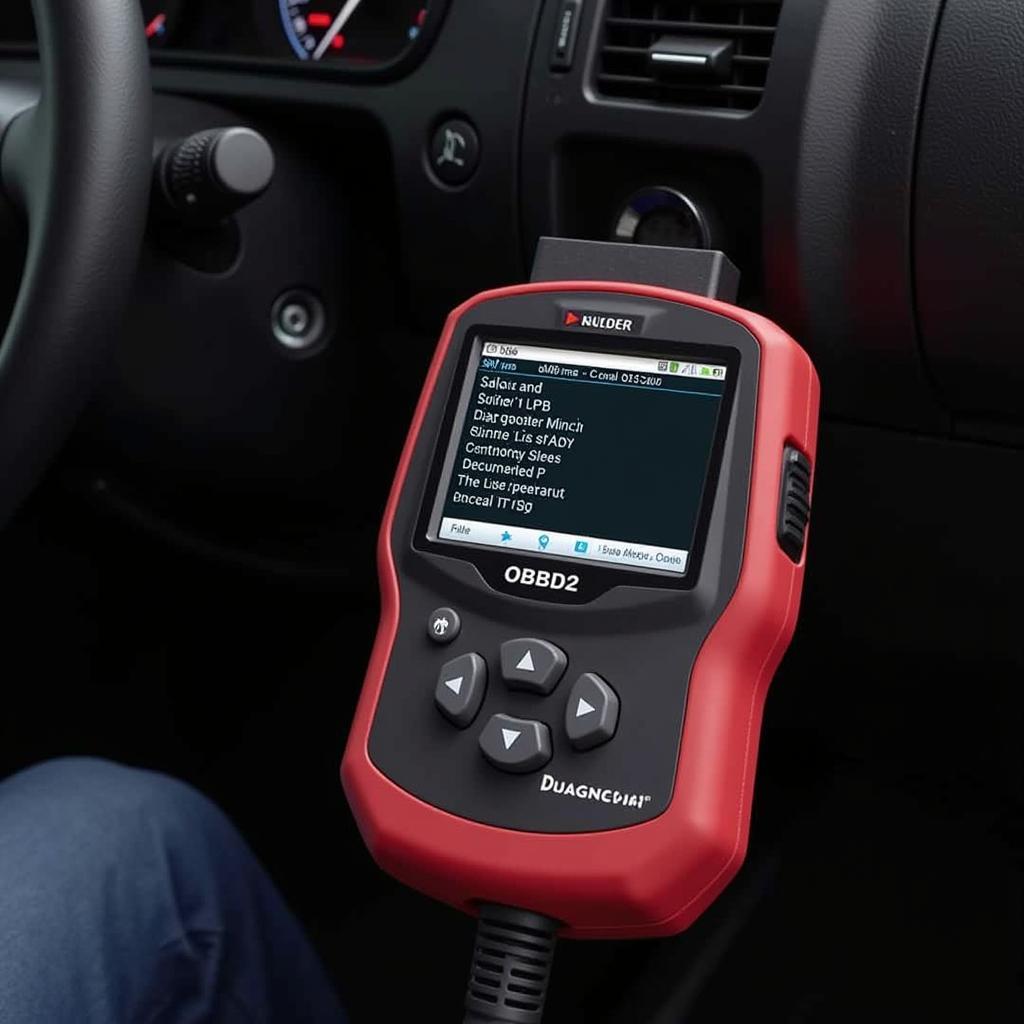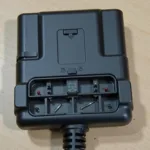When your fuel gauge starts acting up or disappears altogether, it’s natural to wonder what’s going on. Could your trusty OBD2 scanner hold the key to understanding your fuel situation? Let’s dive into the relationship between OBD2 scanners and your vehicle’s fuel level.
What Information Can an OBD2 Scanner Provide?
OBD2 scanners are powerful tools that tap into your vehicle’s onboard computer, providing a wealth of information about its health and performance. They can read and interpret diagnostic trouble codes (DTCs), giving you insights into potential engine problems, emissions issues, and more.
While OBD2 scanners excel at engine diagnostics, they don’t always have direct access to fuel level data.
Why OBD2 Scanners Don’t Always Show Fuel Level
The ability to read fuel level through an OBD2 scanner depends on how your vehicle’s system is designed. Here’s why:
-
Separate Systems: In many vehicles, the fuel level sensor, which measures the amount of fuel in your tank, operates on a separate system from the OBD2 system. This means the information isn’t readily accessible through the OBD2 port.
-
Manufacturer Specific Data: Some manufacturers include fuel level data in their OBD2 output, but this is not standardized across all makes and models. If a manufacturer chooses not to include it, your OBD2 scanner won’t be able to access it.
How to Check Your Fuel Level
If your OBD2 scanner isn’t providing fuel level readings, don’t worry. Here are the most reliable ways to check:
-
Fuel Gauge: Your vehicle’s fuel gauge is usually the most straightforward way to monitor your fuel level. However, keep in mind that gauges can malfunction, so it’s essential to be aware of other signs of low fuel.
-
Trip Odometer: Keep track of your mileage since your last fill-up. By knowing your vehicle’s average fuel economy, you can estimate how much fuel you have left.
-
Warning Lights: Most vehicles have a low fuel warning light that illuminates when your fuel level drops below a certain point. Pay attention to this warning and refuel promptly.
When to Suspect Fuel System Problems
If you’re experiencing fuel level inconsistencies or suspect a problem, here are some signs to watch for:
-
Inaccurate Fuel Gauge: A fuel gauge that fluctuates erratically, shows empty when you have fuel, or consistently provides inaccurate readings could indicate a faulty fuel level sensor or other issues.
-
Strong Fuel Smell: A strong gasoline odor inside or around your vehicle, especially when parked or after refueling, could signal a fuel leak and should be addressed immediately by a mechanic.
-
Engine Performance Issues: While not always directly related to fuel level, problems like engine sputtering, hesitation, or stalling could stem from fuel system issues that require professional attention.
Getting to the Bottom of Fuel-Related Issues
If you suspect a problem with your fuel system, it’s best to consult a qualified mechanic. They can:
-
Diagnose the Problem: Mechanics have the expertise and specialized tools to diagnose fuel system issues accurately.
-
Inspect Components: They can inspect the fuel level sensor, fuel pump, fuel lines, and other components for damage or malfunction.
-
Perform Repairs: Based on the diagnosis, a mechanic can carry out necessary repairs to restore your fuel system’s proper function.
Conclusion
While OBD2 scanners are invaluable for engine diagnostics, they don’t always provide fuel level readings. Understanding how your vehicle’s systems work and recognizing potential fuel-related problems will help you stay on top of your car’s maintenance and ensure a smooth and safe driving experience.
FAQs about OBD2 and Fuel Level
Can I add a feature to my car to make it OBD2 compatible for fuel level readings?
Unfortunately, retrofitting a vehicle to provide fuel level data through the OBD2 port is often complex and may not be feasible.
Are there any aftermarket devices that can read fuel level?
Yes, some aftermarket fuel level sensors connect to your vehicle’s fuel system and transmit data wirelessly to a separate display or smartphone app.
Is it safe to drive my car if the fuel gauge isn’t working?
It’s not recommended. Driving with a faulty fuel gauge can lead to unexpected breakdowns and potentially dangerous situations. Seek repairs promptly.
How often should I have my fuel system inspected?
While there’s no set schedule, having your fuel system inspected as part of regular vehicle maintenance is a good preventive measure.
What should I do if I smell gas inside my car?
Do not start your engine. Open windows for ventilation and contact a mechanic or towing service immediately to address the potential fuel leak.
Need help with OBD2 scanning or have questions about your vehicle’s diagnostics? Don’t hesitate to reach out to our expert team via WhatsApp at +1(641)206-8880 or email us at [email protected]. We’re available 24/7 to assist you.


